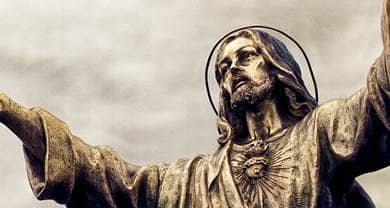- Trending:
- Pope Leo Xiv
- |
- Israel
- |
- Trump
- |
- Social Justice
- |
- Peace
- |
- Love

RELIGION LIBRARY
Lutheran
Ultimate Reality and Divine Beings
Luther's God is an all-powerful God. He stressed this idea in ways that may surprise people today. For Luther, God is wholly other than we are, and so we cannot rely on analogies from our own experience to understand God. We know about God only what God chooses to reveal to us. The picture of God in scripture is not uniformly comforting. God's power and goodness are not constrained by human conceptions of power and goodness. The Bible contains many stories of God acting in ways that contradict commonly accepted human beliefs regarding morality. (For example, in one Old Testament story, Uzzah puts his hand on the Ark of the Covenant to keep it from falling on the ground as it makes its way into Jerusalem, and is struck dead by God for his trouble. [2 Samuel 6:1-7]) In a way, for Luther this is the whole point: God acts in ways that puzzle or trouble us precisely to break down our reliance on our own reason and morality. Luther calls these acts the "alien works of God." God also comforts us with promises to forgive our sin. Luther calls acts that cause this experience the "proper works of God."
Luther maintains the traditional Christian teaching of the two natures of Christ: fully God and fully human. It is only because Jesus Christ is human that he can be punished for human sin. It is only because Jesus Christ is God and without sin that his sacrifice can pay the infinite debt of sin. As God, Jesus is not necessarily the friendly savior taught in some Sunday schools. One of Luther's favorite Bible passages was Mark 7:24-30, in which a non-Jewish woman asks Jesus to cure her daughter. Jesus responds, "First let the children eat all they want," he told her, "for it is not right to take the children's bread and toss it to their dogs," which by any human standard must be counted as a very rude response. The woman persists: "Yes, Lord," she replied, "but even the dogs under the table eat the children's crumbs" and Jesus relents and cures her daughter. The point for Luther is that God's (and therefore Jesus') alien works do not conform to our ideas. We are to cling to the hope, as this woman does, that the "no" of rejection will become the "yes" of grace promised in the gospel.
It has always been a theological puzzle in Christianity to hold together the ideas that Jesus is both God and human, that is, that two essentially different natures appear in one person in a way that does not split Jesus' personality. This puzzle becomes even harder in the 19th century when people begin to assume that what it means to be fully human is not simply to "have" a static human nature, but also to develop and change over time. Classical Christian doctrine does not allow for change in God. An important contribution to Christian thought is made by 19th-century Lutheran theologians who develop the idea of a "kenotic" (from the Greek word for "emptying") Christology. Philippians 2:7 states that Christ "emptied himself," being born as a servant. Many 19th-century Lutherans argued that this meant that Jesus emptied himself of his divine attributes (omnipotence, for example) in order to be born and develop as a true human. Their critics argue that this falls into the old heresy of Arianism (or, Ebionitism), which is the error of thinking of Jesus as less than fully divine.
Luther lived in a medieval world that did not question the existence of witches, goblins, demons, and other beings that most people today see as superstition. For Luther the devil was not some abstract symbol of evil, but a very real and threatening being. He reports hearing the devil thump about the room while he is trying to work, and records the following conversation: "When I awoke last night, the Devil came and wanted to debate with me; he rebuked and reproached me, arguing that I was a sinner. To this I replied: Tell me something new, Devil!" He showed his contempt for the devil by farting at him, and recommends to his parishioners that they tell the Devil to go eat his own dung. Luther frequently felt attacked by the devil (this has led some historians to think he suffered from depression). The only defense was faith in Christ, and Luther would yell: "I have been baptized, I am a Christian!"
Angels, too, are very real beings for Luther. For Luther, "An angel is a spiritual creature created by God without a body for the service of Christendom and the church."
Today, many Lutherans retain traditional beliefs in the devil and in angels. For many, angels seem either uncomfortably pre-modern, or simply have no relevance to their belief system, and the devil is a symbol of evil. Surveys show that increasing numbers believe in angels (and heaven) but reject belief in the devil (and hell). Still others believe in angels but, perhaps without being aware of it, instill them with qualities more in line with New Age religious movements than with those of traditional Christianity.










